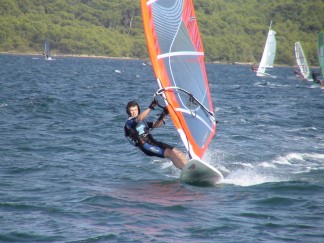Part-3 (of 3) of the blog mini-series on youth
Dr Nicky Keay nickykeay
Many publications report concerns over low exercise levels in young people. At the other end of the spectrum there are potential pitfalls to be avoided for young athletes. Some aspects have been discussed in my previous blogs: health and fitness in young people and optimising health and fitness for young people, below are some updates.
 Supporting previous publications that exercise in young people improves cognitive and academic performance, research found that in boys, delay in reading skills was associated with high levels of sedentary time combined with low levels of exercise. Low muscle tone, associated with lack of exercise is also proposed as potential inhibitor of learning in children. Lack of physical activity, coupled with unfavourable body composition in young people is linked with adverse outcomes for bone development and cardio-metabolic disease in adults. Now there also appears to be long term consequences for cognitive ability and neuromuscular skills.
Supporting previous publications that exercise in young people improves cognitive and academic performance, research found that in boys, delay in reading skills was associated with high levels of sedentary time combined with low levels of exercise. Low muscle tone, associated with lack of exercise is also proposed as potential inhibitor of learning in children. Lack of physical activity, coupled with unfavourable body composition in young people is linked with adverse outcomes for bone development and cardio-metabolic disease in adults. Now there also appears to be long term consequences for cognitive ability and neuromuscular skills.
For young people already involved in sport training, the same principles apply in that this represents the optimal time in life for development of not only physical fitness such as CV fitness, muscular strength and endurance, but also neuromuscular skills. All these factors are important to enhance sport performance and to avoid injury. The risk of injury is more prevalent in early sport specialisation, so any strategies to minimise injury risk is important. For example, periodised strength and conditioning with neuromuscular training to reinforce the acquisition of a diverse range of motor skills. In other words to combine both health related physical fitness (eg. CV fitness) with skill related fitness (eg. co-ordination). The Pilates style body conditioning which I teach for young people, includes developing flexibility, proprioception, core stability, balance and co-ordination which are applicable for all sports.
Collaboration with coaches, sports clubs, physiotherapists and other health care professionals is required to support young people and their families in optimising health and fitness.
References
Health and fitness in Young People
Optimising Health and Fitness for Young People
Reading skills in sedentary boys
Muscle tone and leaning in children
Factors impacting bone development
Optimal Heath especially for Young athletes! British Association of Sport and Exercise Medicine
The role of Pilates in facilitating sports performance